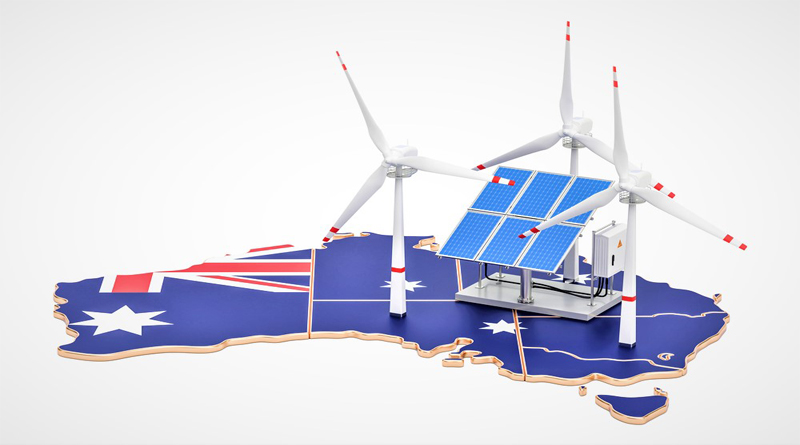

According to new figures released by the Clean Energy Council (CEC), Australia’s renewable energy sector almost doubled its output over the past 12 months, with new energy and storage projects worth $20 billion in investments now under construction. However, the Council has warned that the current growth of the sector can not be sustained over a long period without policy certainty.
The council, which represents solar, wind, energy efficiency, hydro, bioenergy, energy storage, geothermal and marine businesses, along with more than 5,000 solar installers, has released new figures claiming a record year for Australia’s renewables industry with more than 80 wind and solar farms under construction. The cumulative capacity under construction is 14.6 GW, generating on completion nearly four times as much power as the highly contested Liddell Power Station in NSW.
Kane Thornton, Chief Executive, CEC said 2018 was unquestionably a record year for the industry. “The total value of the projects underway is double where we were at the end of last year. Plus, the wind and solar projects completed in 2018 add up to $6b, taking the total of projects completed or underway this year to more than $26 billion.“
With more than 80 projects being built which will bring in $20 billion in investments, the council has predicted that at least 13,000 direct jobs will be created. “It really is an amazing time for this industry,” Thornton said.
The biggest winners from the $20 billion worth of new renewable energy projects are:
Despite the record results, Thornton said that the billion-dollar economic boom from renewable energy in regional Australia could come to an end if the energy policy debate is left to languish unresolved.
“While new investment no longer requires subsidy, it does require long-term energy policy certainty. As the year closes, we are no closer to national, bipartisan energy and climate policy. If anything we are further away then when we started.” He further added, “States and territories have stepped in to fill the void with their own initiatives to encourage jobs and investment in new clean energy. But there remains a clear vacuum of federal energy policy in Australia.“
Interestingly Australia has been veering towards protecting its coal legacy in recent times, even going back on its commitments for energy emissions by 2030. Here is one hope that despite policy setbacks, market forces could tilt the balance in the right direction.
In a significant move toward advancing green energy and industrial growth in the state, Himachal…
Golabl chemical conglomerate BASF has announced that its now offering the world’s first biomass-balanced polyethersulfone…
In a crucial stint to bolster the biogas sector and sustainable dairying in the country,…
TotalEnergies SE has received approval to proceed with its Middlebrook solar and battery project in…
Andhra Pradesh Chief Minister Chandrababu Naidu has inaugurated the Rs 1,000-crore green hydrogen plant of…
The BITS Pilani has developed an innovative solution for managing landfill leachate, domestic septage, and…